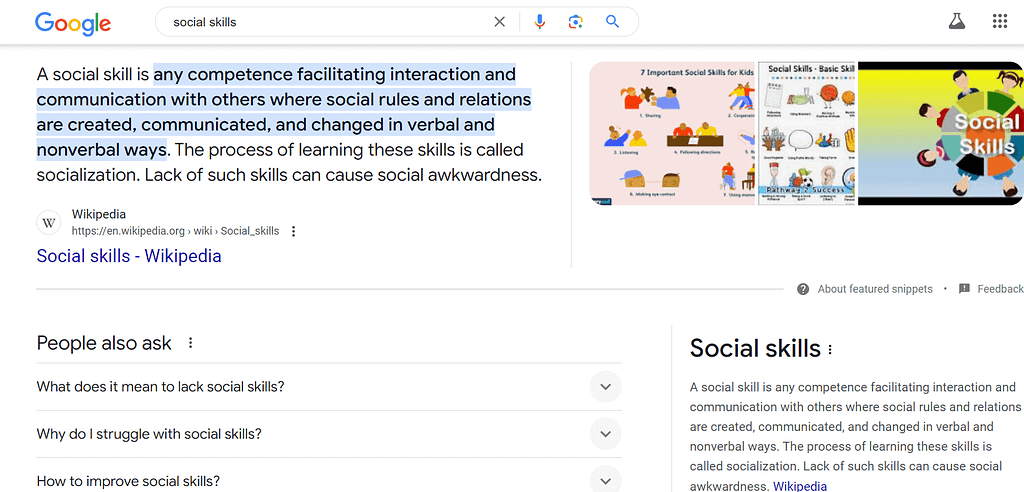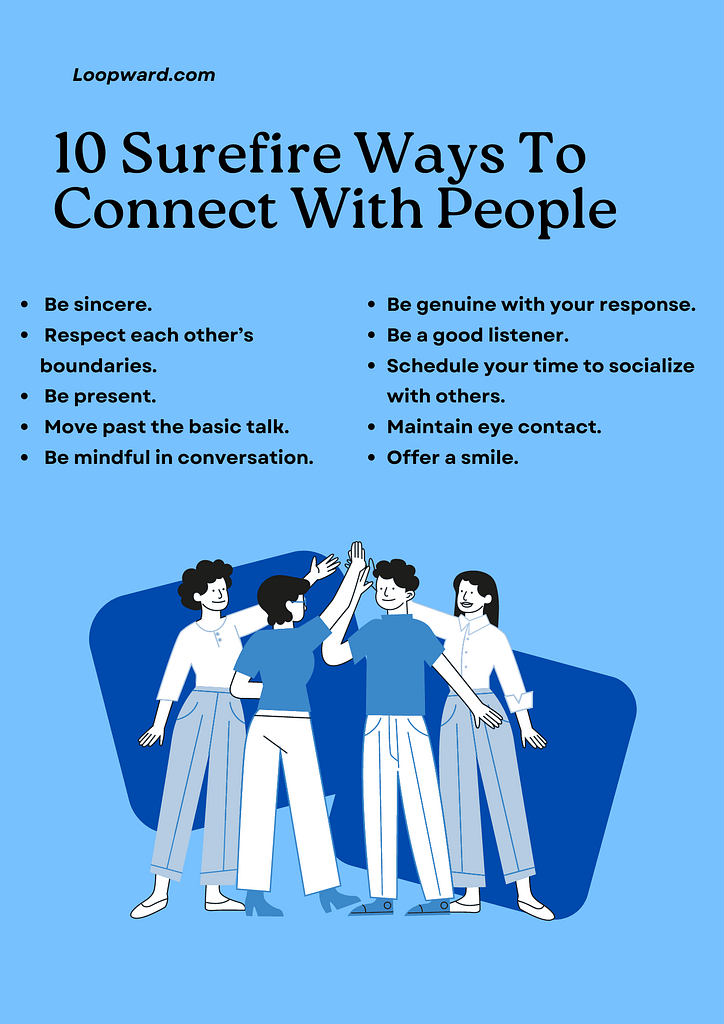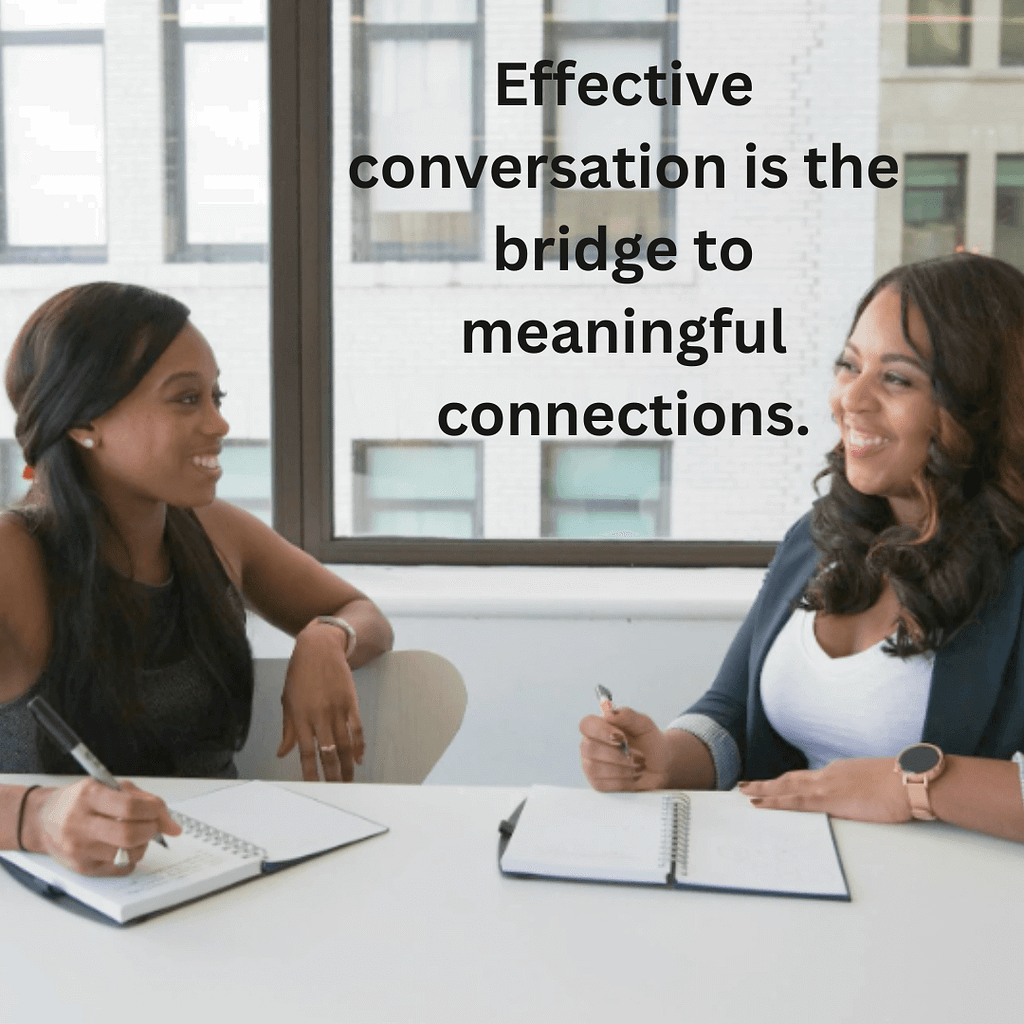Last updated on October 30th, 2024 at 08:21 am
You can connect better and thrive socially just by learning from an online course about social skills. Did you know that 85% of job success comes from having well-developed soft skills, including social and conversation skills? Whether it’s networking at a professional event, making new friends, or simply having engaging daily interactions, strong social skills are essential in every aspect of life.
What’s the difference between Social Skills & Conversation Skills
Social skills include various behaviors and abilities that help people interact well with others. These skills involve empathy, cooperation, resolving conflicts, and understanding social cues.
Conversation skills are a part of social skills but focus specifically on talking with others. This means listening actively, speaking clearly, taking turns, and keeping the conversation interesting and relevant.
In short, social skills help with all types of interactions, while conversation skills are all about effective verbal communication.

The Importance of Social Skills
Building Relationships
Social skills are the glue that holds our relationships together. At home, they help us share laughs with friends, resolve family disagreements, and connect deeply with romantic partners. These moments thrive on our ability to understand, empathize, and communicate.
At work, social skills are just as important. They allow for productive brainstorming sessions and effective client meetings, where clear communication is key.
Career Advancement
Social skills are your secret weapon for career success. Good communication keeps everyone on the same page, reduces errors, and boosts efficiency. If you’re aiming for a leadership role, remember that great leaders are also great communicators who inspire, resolve conflicts, and foster teamwork.
In job interviews, candidates who confidently articulate their thoughts and connect with the interviewer leave a lasting impression. On the job, these skills make you a prime candidate for promotions and leadership roles.
Social interactions aren’t just for networking; they’re vital for mental health. A strong support network can reduce stress and enhance happiness. Sharing worries with a friend or celebrating successes with loved ones provides emotional support, helping you feel valued and connected.

The Importance of Conversation Skills
Effective Communication
Being able to express your thoughts clearly is crucial for good communication. When you speak clearly, others can easily understand and respond to you. Just as important is active listening—truly hearing and understanding what others are saying.
Conflict Resolution
Good conversation skills are essential when it comes to managing and resolving disputes. Communicating effectively during conflicts can prevent issues from getting worse. Negotiation skills are vital here, helping you find common ground and work towards solutions that everyone can agree on.
Building Trust and Rapport
Building trust and rapport begins with making quick, positive connections. A good first impression can set the stage for future interactions. Strong conversation skills help you form deeper connections, creating trust and mutual respect. This is important in both personal and professional settings, as strong relationships lead to better collaboration and understanding.

Challenges in Developing Social and Conversation Skills
Ever felt like you’d rather face a room full of spiders than start a conversation at a party? You’re not alone! Social anxiety and shyness can make even the most outgoing people want to hide.
Lack of Practice or Exposure
If you’ve been living under a rock—or just buried in work—it’s tough to get good at socializing. Just like riding a bike, social skills need regular practice. No one expects you to nail a TED Talk without some training wheels.
Misunderstanding Non-Verbal Cues
Ever waved back at someone who was actually waving at the person behind you? Misreading body language and other non-verbal cues is a common mistake. It’s like trying to watch a movie with the sound off—you miss a lot of the plot!
How to Improve Your Social & Conversation Skills
Ready to up your social game? Here are some fun and actionable tips to get you started:
1. Understand Your Mindset
Instead of thinking, “How can I impress these people?” shift to, “What can I learn from them?” Approach each person as if they have a fascinating story to tell – because they do. This mindset makes you more curious and less self-conscious.
2. Prepare and Have a Plan
Before heading to a party, research the host’s interests or the event’s theme. If you know the host loves gardening, start a conversation about the most unusual plant they’ve ever grown. At a tech conference, ask about the latest innovation in AI that’s got everyone buzzing.
3. Learn Small Talk
Instead of the usual “How’s the weather?” try “I recently read about an app that predicts the weather using AI – have you heard of it?” This introduces a novel topic and sets the stage for a deeper discussion. Learn more about why you can’t small talk.
4. Ask Above Average Questions
Skip “What do you do?” and ask, “What’s a project you’re currently excited about?” or “If you could be an expert in any field overnight, what would it be?” These questions encourage people to share their passions and aspirations.
5. Listen to Find Their Spark
While listening, pay attention to what makes their eyes light up or their voice become animated. If they mention a new hobby, like woodworking, ask, “What’s the most challenging piece you’ve created?” This shows genuine interest and keeps the conversation lively.
6. Empathy is Your Superpower
Empathy isn’t just about feeling sorry for someone—it’s about truly understanding their perspective. If someone mentions they’re overwhelmed with a big project, respond with, “Wow, that sounds intense. I’ve been there with big projects that kept me up at night. What’s your go-to way to relax after such a hectic day?” This shows you’re not only listening but also connecting on a human level.
7. Open Up About Yourself
Share a quirky fact or a funny story. If you’ve recently taken up a bizarre hobby like extreme ironing (yes, it’s a thing), mention it. “I just started extreme ironing – it’s ridiculous but surprisingly fun! Have you ever tried any unusual hobbies?” This makes you memorable and approachable.
8. Pay Attention to Body Language
Notice if they lean in when talking about their pet or if they cross their arms when discussing work. Respond accordingly. If they seem excited, mirror their enthusiasm: “I can tell you’re passionate about your dog. What’s the funniest thing they’ve ever done?” If they seem guarded, ease off and switch to a lighter topic.
9. Stay Upbeat and Have Fun
Positivity is contagious. Even in mundane situations like waiting in line, find the silver lining: “Long lines can be tedious, but I once met a great friend while waiting for coffee. Ever had a surprise like that?” Keep the mood light and enjoyable. Approach conversations playfully, like a detective uncovering fascinating stories. Whether debating pineapple on pizza or discussing space missions, let your enthusiasm show.
10. Get Feedback and Give Yourself a Break
After social interactions, reflect on what went well and what could improve. Ask a trusted friend for feedback: “Hey, I tried being more open and asking unique questions last night. How did it come across?” Also, remember to cut yourself some slack. Not every conversation will be perfect, and that’s okay. Celebrate the effort, not just the outcome.

Boost Your Social and Conversation Skills with Online Courses
Conversation Skills Course Taking a conversation skills course can dramatically enhance your ability to engage in meaningful and effective dialogues. These courses focus on teaching active listening, clear articulation, and maintaining engaging conversations.
Online Course Social Skills An online course in social skills offers flexibility and convenience, allowing you to learn at your own pace. These courses cover a range of topics, from understanding social cues to building empathy and cooperation.
Online Courses: How to Improve Your Conversation and Listening Skills Online courses designed to improve your conversation and listening skills provide practical techniques for better communication. You’ll learn how to listen actively, respond thoughtfully, and engage more deeply in conversations.
Online Courses: Better Conversation and Communication Skills Enroll in online courses aimed at better conversation and communication skills to gain insights into effective speaking and listening.
These courses help you master the art of conversation, making your interactions more productive and enjoyable.

Why Take an Online Course?
- Flexibility: Learn at your own pace from the comfort of your home.
- Comprehensive: Cover various aspects of social and conversation skills.
- Practical: Apply what you learn in real-life situations to see immediate improvements.
Enhancing your social and conversation skills through an online course can significantly improve your personal and professional interactions.
FAQs: About Social and Conversation Skills
Why do I struggle with small talk?
Small talk can feel superficial and awkward. Our course helps you find common ground and transform small talk into meaningful conversations, making it easier and more enjoyable.
How can I become a better listener?
Active listening is key. Focus on the speaker, show engagement through body language, and ask thoughtful questions. Our course provides in-depth techniques to enhance your listening skills.
What are some tips for overcoming social anxiety?
Preparation and practice are essential. Our course offers strategies to build confidence and manage anxiety, helping you feel more at ease in social situations.
How can I handle difficult conversations better?
Stay calm, listen actively, and use empathy to understand the other person’s perspective. Our course provides practical advice for navigating tough discussions with confidence and care.
Why is body language important in communication?
Non-verbal cues like eye contact, gestures, and posture significantly impact how your message is received. Our course teaches you how to use body language effectively to enhance your communication.
What can I expect to learn from an online social skills course?
You’ll learn techniques to improve small talk, active listening, confidence in social situations, handling difficult conversations, and using body language effectively.
How long does it typically take to see improvements if I take a course?
With consistent practice, many people start to see noticeable improvements within a few weeks. Our course is designed to provide quick, practical results to boost your social skills.
The Finale …
In today’s fast-paced world, mastering social and conversation skills is more crucial than ever. These abilities are the key to building meaningful relationships, advancing in your career, and maintaining your mental well-being.
Whether you’re navigating a professional event, making new friends, or enhancing daily interactions, effective communication sets you apart.
Start Having Conversations Today
Grab our free Tool Kit which includes a mini-course and a social blueprint, to help you prepare and boost your confidence for social interactions.
By joining our community and exploring more of our blog posts, you’ll move away from thoughts like “why can’t I talk to people”. “I can’t have a conversation!?” Instead, you’ll find yourself feeling more confident and ready.
